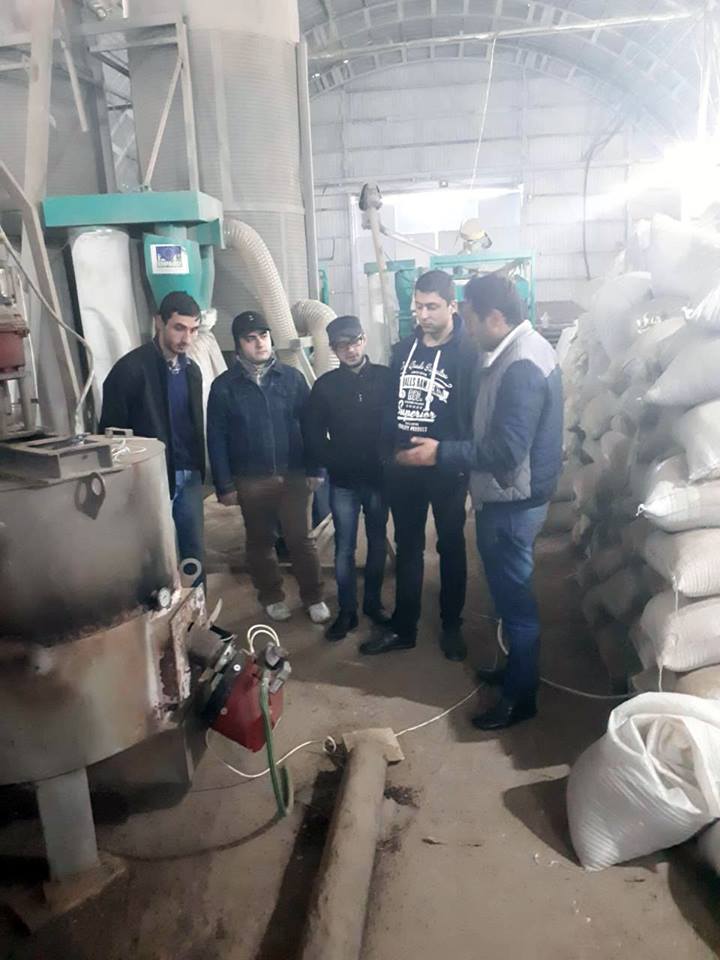-
About
- Our Work
- Get Involved
- Stay Updated
My name is Artur Harutyunyan, I am a YPARD Armenia member and a senior student at Agribusiness Teaching Center (ATC). During my two years of education at ATC, I have been provided with firm and in-depth knowledge about the agribusiness sector.
Agribusiness related subjects such as Agricultural Economics, Agroecology, Environmental and Natural Resource Economics, Agribusiness Case Study has become a cornerstone for my development as a young agricultural specialist. However, one subject that gave me very in-depth and granular practical experience was Agricultural Cooperatives.
About three months ago, we had our first real-life experience with ag. cooperatives. We had field trips to various cooperatives where we tried to understand the overall situation, the level of knowledge of coop members about the regulatory framework and standard policies, what rights and responsibilities are assigned to their members and so on.

The meetings were very fruitful for us not only because we attended the above-mentioned cooperatives and got acquainted with their operations but we also provided our own viewpoints and advice on how they could further flourish their cooperatives and get necessary financial support. One example was our awareness of Kiwa organization aiming to support individual farmers and cooperatives by providing agricultural loans with 0% interest. The major source of our help was the multi-directional education we were provided. Being not only agribusiness specialists but also future marketers, we gave some on-hand experience (unique packaging, social media marketing, promotion of a national product, etc.) to their market research analysts.
The role of Agricultural Cooperatives is especially important in Armenia, where farmers are isolated from the market and dont have the power to influence prices. Agricultural cooperatives can serve as a way to unite farmers in a small geographical area where they grow and process identical agricultural commodities with the aim to increase their influence in the market and provide bargaining power which would be very hard or impossible to achieve individually. Speaking frankly, agricultural cooperatives are underdeveloped in Armenia.
Members do not perceive the true meaning and value of cooperation as they wait for someone to give them orders on how to get the work done. Member shares are very low. In many cases, the cost of a share for enrolment is as low as 500 AMD. The legislative framework is still not enforceable, prompting members to deviate from rules or not registering their cooperatives at all. Yet, another major performance gap is that farmers are not well informed about financial and marketing organizations and consulting agencies (especially international that either has a branch in Armenia or come for 2-3 months). These are the major weaknesses of Armenian agricultural cooperatives.
I believe that with the help of international agricultural development projects like ENPARD and OASI, as well as the highly qualified graduates that ATC provides, within 10-15 years there will be a significant improvement in the way how cooperatives operate. After my graduation, I am willing to work in this very difficult and challenging but at the same time rewarding and interesting field.
Picture credit: Artur Harutyunyan
About the author
Author's recent posts
More posts from authorRelated Posts
Comments
No comments made yet. Be the first to submit a commentBy accepting you will be accessing a service provided by a third-party external to https://www.ypard.net/
Get in touch
Email: [email protected]
YPARD Global Coordination UnitHosted by AGRIDEA and the Czech University of Life Sciences Prague
Lausanne, Switzerland and Prague, Czech Republic - Our Work


